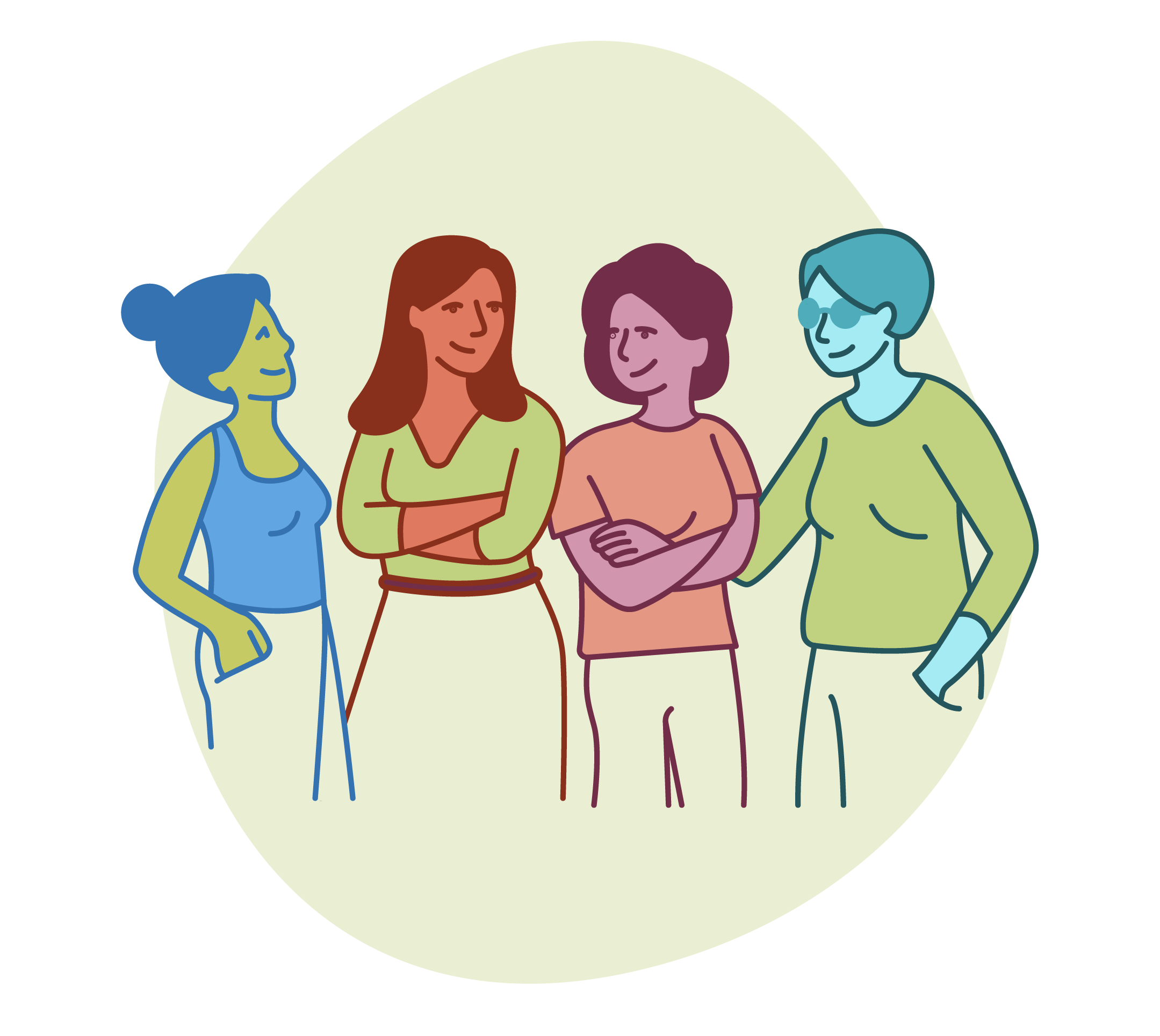
Join 1,000s of women in our pause. community
Get valuable information and support from our community and team of menopause specialists. Subscribe for the latest evidence-based information, free events, helpful articles and inspiring women’s stories.
Downloaded from www.mymenopausecentre.com
Direct URL: https://www.mymenopausecentre.com/symptoms/breast-tenderness/
A short guide to what causes breast tenderness during the menopause, what the symptoms are and what you can do to reduce them.
The highly experienced doctors and nurses in our menopause clinic are here to help you. Appointments from £190.
Book An AppointmentIf you would like to learn more about the impact of your symptom(s) complete our free online menopause questionnaire here.
Breast pains are a common part of the menopause transition, although they are experienced in different ways. For some women, it’s an experience of tenderness, burning or soreness as they go through the perimenopause and into the menopause. For others, it’s a stabbing, sharp or throbbing pain. Breast pain can occur in just one or both breasts.
Most women worry about any symptoms concerning their breasts, and that’s a natural response. Try not to panic.
Breast pain and tenderness are rarely early signs of breast cancer, but please speak to a doctor if you’re worried, especially if you find a lump, if there is any change in the appearance of your breasts or nipples, or any nipple discharge.

Illustration to show symptoms and signs of breast cancer
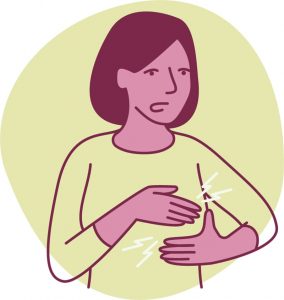
Your breast tissue is sensitive to hormones. In the perimenopause, oestrogen and progesterone hormones spike up and down unpredictably. It’s these hormone changes that give us symptoms of tenderness.
As most of us know, our breasts can head south as we go through the menopause. This is because the quality of the supporting connective tissue decreases as you lose oestrogen. If your bra doesn’t give you enough support, that can also make your breasts feel tender and uncomfortable.
It’s estimated that around 40% of all women experience breast tenderness at some time in mid-life, but it usually improves with age.[1]
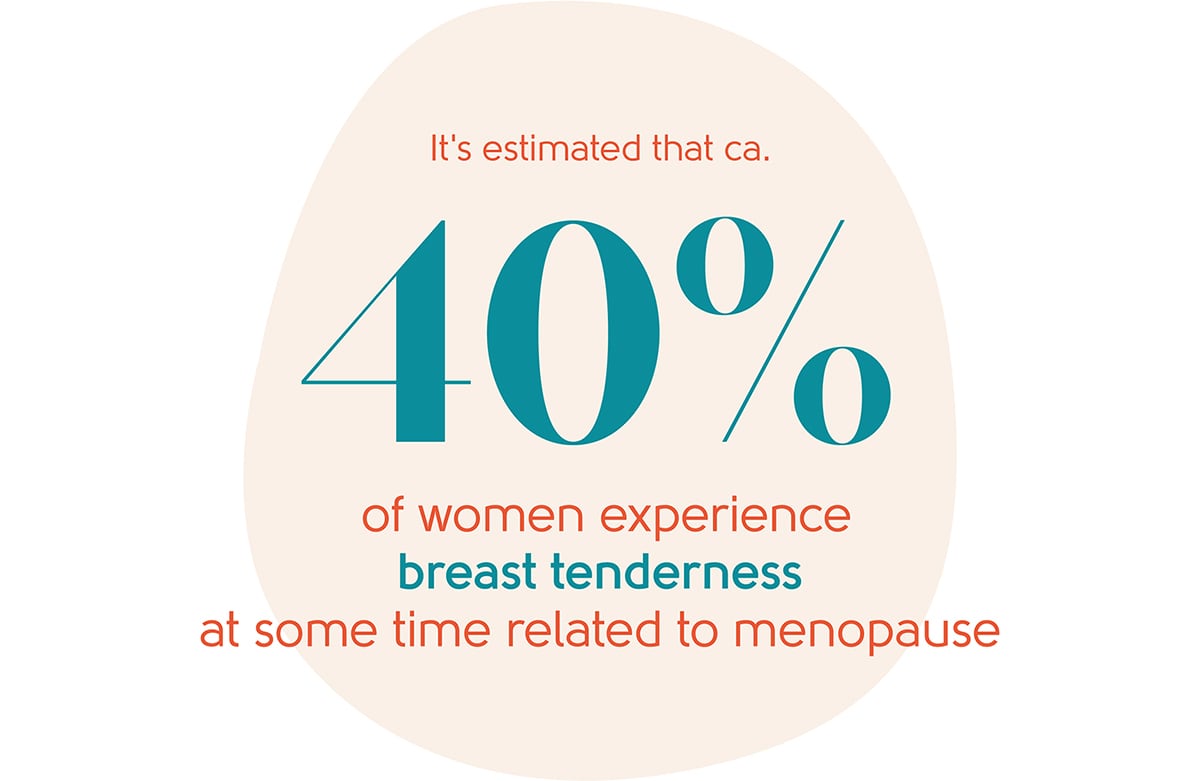
Breast tenderness is more common in the perimenopause than in the later stages of the menopause transition, where oestrogen levels stabilise.
Many women have experienced breast pain and tenderness as a premenstrual symptom, and it may get worse in the perimenopause.
The good news is that there are quite a few ways to help lessen this symptom of the menopause transition. They include:
Supporting your breasts with a well-fitting bra can make a big difference. Lots of department stores and lingerie shops offer fitting services to help you get it right.
As well as reducing breast pain, it will also reduce your risk of breast cancer. If you would like help to quit, the NHS is a great place to start.
Just as it can lessen bladder symptoms, cutting caffeine out of your diet can dampen the effects of breast tenderness[2].
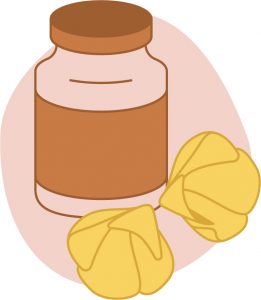
Taking a dose of around 320mg/day for three to six months may help some women. Even though it’s a natural product, this isn’t suitable for everyone as it may increase the chance of bruising and bleeding. Just because it’s natural doesn’t mean it’s safe for everyone.
You shouldn’t take evening primrose oil for at least two weeks before surgery. If you have epilepsy, it can increase your chance of seizures.
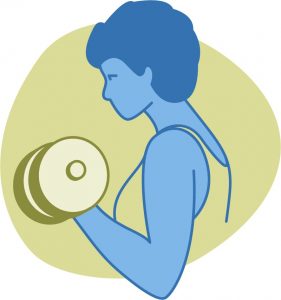
Trying to lose even a small amount of weight can have a really positive effect on your body and your mental health. We know it’s not easy, that’s why we recommend our friends at Her Spirit. They can help you get more active by finding an activity for you and by providing the support to do it.
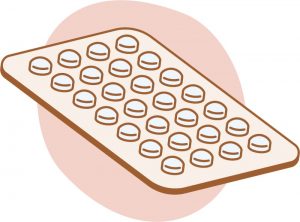
Simple anti-inflammatory painkillers can help with breast tenderness. Not everyone can take anti-inflammatories – there is more information on the NHS website.
As always, please speak to a doctor or pharmacist before taking anti-inflammatories if you have any other medical conditions or are taking other medication.
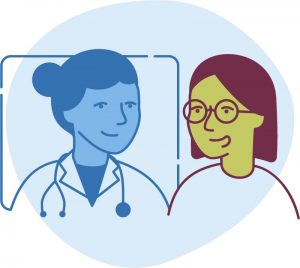
If you’re worried about breast tenderness, you should see your GP. If you would like to discuss your symptoms in the context of the menopause, book an appointment with our menopause clinic.
If you think you may be experiencing symptoms of the menopause transition, you can learn more with our symptom checker or by taking our Menopause Questionnaire.
You can also find more information about the menopause transition at the British Menopause Society and the National Institute for Health and Care Excellence.
Dr Clare Spencer
Registered menopause specialist, GP and co-founder; see Dr Clare in person at The Spire Hospital, Leeds or online
07/04/2021
The highly experienced doctors and nurses in our menopause clinic are here to help you. Appointments from £190.
Book An AppointmentWe’ve created pause. as a space for women to come together and share stories about their menopause experience, ask questions, and to find support and inspiration. We'll also share the latest news and updates on the menopause from our experts.
Share your email to receive the latest news, updates and information on new products and treatments from My Menopause Centre and our pause. community. You can unsubscribe at any time.
We're committed to protecting and respecting your privacy - see our Privacy Policy and Terms and Conditions

Whether you want to discuss your symptoms, create a treatment plan that's right for you, understand some test results or have a check-up, the highly experienced doctors and nurses in our menopause clinic are here to help you.
Book nowMishra Gita D, Kuh Diana. Health symptoms during midlife in relation to menopausal transition: British prospective cohort study BMJ 2012; 344.
Source: Russell LC. Caffeine restriction as initial treatment for breast pain. Nurse Pract. 1989 Feb;14(2):36-7, 40.